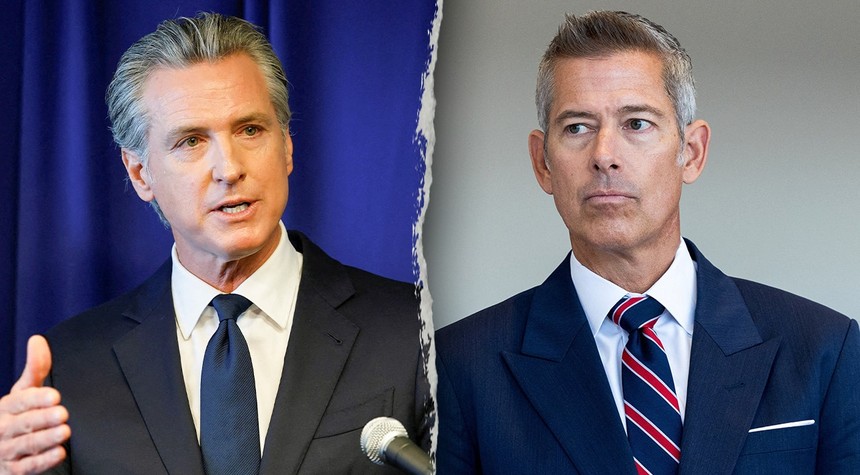The Golden State finds itself in a regulatory tangle that speaks to the heart of immigration enforcement and federal oversight. California is moving to revoke 17,000 commercial driver’s licenses following sustained pressure from the Trump administration, a development that raises serious questions about state compliance with federal transportation standards.
This situation did not materialize overnight. It represents the culmination of weeks of investigation and mounting scrutiny from federal officials concerned about who exactly has been given the green light to operate semi-trucks and school buses on American highways.
Transportation Secretary Sean Duffy minced no words in his assessment of the matter. His statement pulled no punches, declaring that California had been “caught red-handed” after weeks of denials. The Secretary made clear that the revocation of these 17,000 licenses represents merely the beginning of a more comprehensive review. His team intends to verify that every license holder meets proper legal requirements before operating commercial vehicles.
The Transportation Department has notified affected license holders that their credentials no longer satisfy federal requirements and will expire within 60 days. This administrative action affects individuals who received licenses that would have remained valid beyond their legal authorization to remain in the United States.
Governor Gavin Newsom’s office has mounted a vigorous defense, disputing virtually every aspect of the federal government’s characterization of events. In a detailed response, California officials argued that the federal requirements being cited were not in effect when the state issued these licenses. They contend that the licenses are being withdrawn due to inconsistencies with California law, not federal violations.
The dispute extends to fundamental questions about the legal status of the license holders themselves. While federal officials have characterized them as illegal immigrants, California maintains these individuals were present in the country legally and possessed federal work authorization at the time of licensing.
California further challenges the methodology behind the Federal Motor Carrier Safety Administration’s analysis, which reportedly found that more than one in four non-domiciled commercial driver’s license records sampled in California failed to meet federal regulations. State officials argue this analysis applies new rules retroactively, creating compliance issues where none existed under the standards in place when licenses were issued.
This clash between state and federal authority illuminates broader tensions over immigration policy and enforcement. It raises legitimate concerns about transportation safety while simultaneously highlighting the complex legal landscape surrounding work authorization and state licensing procedures.
For Florida and other states watching this situation unfold, the implications extend beyond California’s borders. The question of whether commercial vehicle operators possess proper legal status to work in the United States affects highway safety nationwide. When trucks cross state lines, the licensing standards of one state become everyone’s concern.
The coming weeks will reveal whether this represents an isolated compliance issue or the leading edge of a broader federal review of state licensing practices across the country. What remains clear is that the intersection of immigration policy and transportation safety has created a regulatory flashpoint that demands careful scrutiny and transparent answers.
Related: Healthcare Subsidies Become Flashpoint as Congress Battles Over Funding Bill


